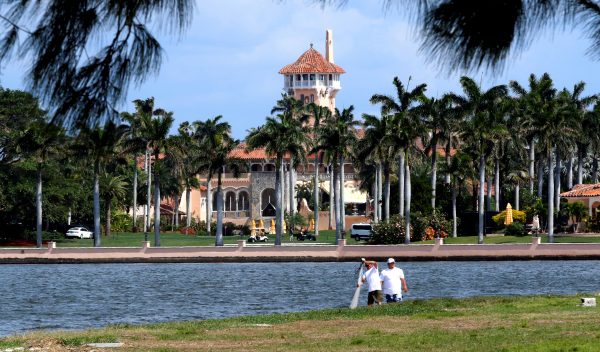The US list of legitimate economic issues with China is certainly long, including intellectual property rights theft, trade barriers and investment restrictions to name just a few. The upcoming summit should go a long way in demonstrating whether the two economic giants can address these issues responsibly, or whether relations will deteriorate into a trade war.
China has been intervening in its own financial market to accumulate reserves and keep the value of its currency low for years. But things have started to change. China’s trade-weighted exchange rate has appreciated 17 per cent since 2010. The problem for the United States is that the dollar has appreciated even more strongly (24 per cent), while the euro and the yen have depreciated. There are many factors behind these trends, but if the United States is concerned about currencies then it makes more sense for it to consult with these four parties rather than single out China.
For two years, China has been selling reserves to keep the value of its currency high. Its reserves have dropped from US$4 trillion to US$3 trillion. China’s current account surplus has come down from above 10 per cent of gross domestic product (GDP) in 2007 to below 3 per cent in 2016. Also, a long pattern of net capital inflows to China has shifted to a steady net outflow of capital. In this environment we should welcome the helpful role that China has played keeping its trade-weighted exchange rate stable for the past year. Naming it a currency manipulator would be odd at this point.
But even at 3 per cent of GDP, China’s trade surplus is large in absolute terms. Behind these persistent trade surpluses is a saving rate that is far beyond the norm of other major economies. China’s saving rate has been around 50 per cent of GDP, coming down a couple of percentage points in the last few years. The current account as a share of GDP is equal to the saving rate minus the investment rate. From 2009–2014, China deployed almost all of this saving at home and as a result its trade surplus was modest. But this investment binge has led to excess capacity. Now, investment as a share of GDP is declining, which is rational in the face of excess capacity. The problem is that, unless savings decline as well, China’s trade surplus is likely to grow.
The problem is not with Chinese households — their behaviour is similar to elsewhere in East Asia. Rather, the problem is that the state controls a lot of GDP — through state-owned enterprises (SOEs) and the government budget — that never reaches households. If more of the national income went to households, the national savings rate would naturally come down. This unerlines the importance of SOE reform.
China is keeping zombie state enterprises alive with credit from state-owned banks. We should encourage China to close bankrupt enterprises and privatise viable ones. China could easily afford more generous pensions for its large number of military and civilian retirees. This would be an immediate way to increase household income for a group that is likely to spend it.
China also spends little public money on health and education. Greater social spending would increase household real income and bolster consumption. Higher consumption would allow China to sustain its growth without relying on rising trade surpluses, which is a problem for the United States and the rest of the world.
Another way for China to minimise its large trade surpluses would be for it to allow more import-based consumption. In general, China’s market access restrictions prevent consumption of foreign goods and services. For instance, China’s 25 per cent import tariff and domestic content rules on autos mean that foreign brand cars sold in China have little foreign content. Agricultural imports, though significant, are highly restricted in important markets such as beef. In the modern service sectors such as finance, telecommunications, media, logistics and health, direct investment is needed in order for China to import services in large volumes. But China is the most closed among G20 countries in terms of investment openness.
China has indicated that it will gradually open these markets, but there has been very little progress in the last 10 years. The United States does not have much leverage to push China to open up. Threatening high tariffs is not likely to encourage China to yield and would backfire by hurting the US economy if implemented. Instead, the United States should consider restricting SOE mergers and acquisitions in the US given the lack of reciprocity on the Chinese side. There are also a range of other trade remedies that the US can deploy in individual sectors.
Encouraging consumption and further opening up the economy are the keys to China’s sustainable growth. With this in mind it should be possible to negotiate changes in the US–China economic relationship that are good for both economies.
David Dollar is Senior Fellow at the John L. Thornton China Center, Brookings Institution. You can follow him on Twitter at @davidrdollar.


It will be business as usual. Some concessions may be offered…!